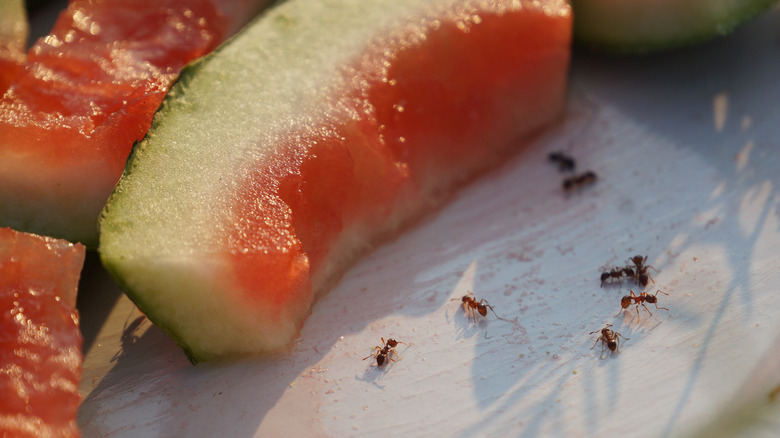Keep Ants Away From Your RV With This Simple Hack
We may receive a commission on purchases made from links.
Ants do a lot of very useful things for our world. According to Harvard Forest, they aerate the soil, eat parts of seeds that then grow in new places, and provide food for other creatures. They're an important part of our ecosystem. They're also a total nuisance when they decide to camp out in your RV. There are chemical repellents aplenty to get rid of them, but you may not want to use things that can be dangerous for children and/or pets. We've got an idea for you that doesn't use any of that.
While you may have heard of natural methods of repelling ants, like, as RV Lifestyle suggests, using a mix of cinnamon and water around areas where ants show up or borax, baking soda, lemon, and vinegar to keep them away, those need to be done pretty frequently. There is a better way to keep ants out of your RV so you can travel without worrying. This method doesn't involve spraying or dropping chemicals or becoming a bug-repellent mixologist in your tiny kitchen. The hack from Camping World involves something you may already have in your tool kit; Gorilla Tape, a brand of duct tape.
How the hack works
Gorilla Tape is useful for so many things. It sticks to most surfaces, is waterproof, and works in extreme temperatures. Though you shouldn't use it as electrical tape, it can be used to fix cracks, keep rain out of a hole in your roof, and myriad other issues in your RV. For the ant hack, you put the Gorilla Tape around any openings and little spaces that ants can get in, like around windows, doors, or where wires enter the RV. The strong adhesive will keep them out without the use of sprays or repellent balls.
Aside from keeping yourself as free of ant bites and stings (yes, it can be either, depending on the ant) as possible, keeping the little creatures outside of your RV means your food will be safer. While you'll probably be okay eating food ants have been on, they can carry pathogens that can make you sick, according to School of Bugs. This is also an effective deterrent for spiders and other tiny pests.

